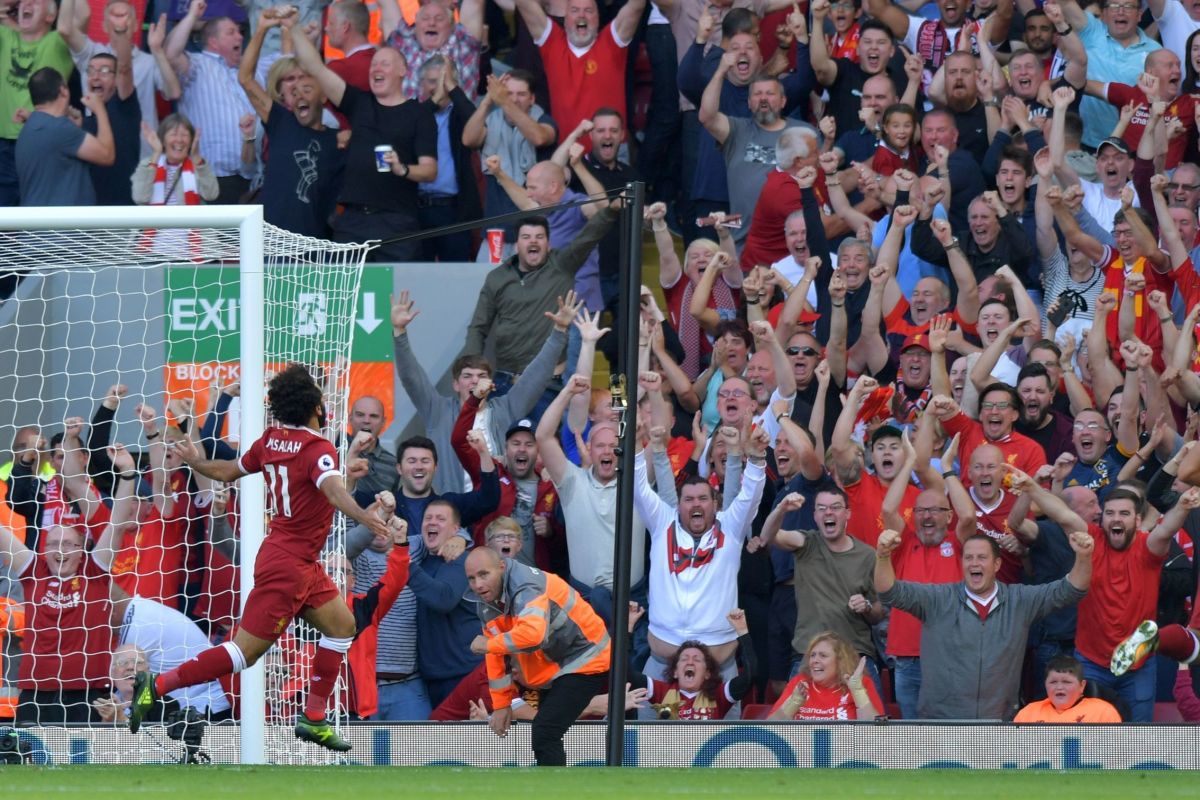Premier League: Evaluating Jurgen Klopp's Time at Anfield

This is Jurgen Klopp’s third season in charge at Liverpool now, where it’s safe to say there have been highs and lows during his tenure.
He took Liverpool to two cup finals in his first campaign, but ultimately both ended in defeat, leaving the Reds with a way below-par eighth-place league finish and no European football.
Klopp’s second campaign allowed him to put his own stamp on his Liverpool squad, and he showed what they had the potential to do. They scored goals for fun while playing scintillating counter-attacking football, which turned them into potential title challengers.
However, then came January and the Reds’ form - as well as their title hopes - had deteriorated, but Klopp’s side ultimately managed to notch fourth place and Champions League football.
Klopp’s first full season in charge at Liverpool highlighted their potential to be a top quality team, but their defensive issues were the worry and a clear factor the German needed to address.
Liverpool have shown flashes of their best football in the opening stages of this campaign, with their 4-0 drubbing of Arsenal a clear example of what they could be. They are also unbeaten in Europe, with a win against Sevilla in their next match bringing them qualification to the last 16.

On the other hand, we have seen Liverpool come under scrutiny also this season, with demoralising 5-0 and 4-0 defeats to City and Spurs, respectively, further enhancing the well-known analysis that Liverpool are weak at the back.
Liverpool find themselves fifth after 11 games, and have conceded the most goals by far compared to the teams sitting above them with 17 (City: seven; Man Utd: five; Spurs: seven; Chelsea: 10). Incidentally, they find themselves sitting third on goals scored with 21, but that figure is eclipsed by City’s 38.
Comparing the statistics between Jurgen Klopp and Brendan Rodgers’ first 73 games at Liverpool makes for interesting reading. Klopp found himself with 37 wins, while Rodgers found himself with 41. Klopp’s side had scored 142, while Rodgers’ had scored 167. Klopp registered 132 points, with Rodgers earning 141- while Klopp found himself with a 50.7% win rate, with Rodgers earning himself 56.2%.
If these statistics are anything to go by, Rodgers was marginally more successful than Klopp in that time, but was brutally dismissed after failing to reignite the form of their 2013/14 title surge. Meanwhile, there have been no whispers at all on the safety of Klopp’s job and there aren’t many who question the decisions and regime of the 50-year-old. But why is that?
At times, it feels that Klopp’s sheer charisma and personality have let him off the hook for some questionable calls. He decided against bringing in a centre-back this summer, which should have arguably been at the top of his priorities. Yet he doesn’t directly get scrutinised for that decision.
His use of substitutions can be enough to make your blood boil, rarely seeing a change made before the 75th minute - regardless of circumstance. There are not often complaints. Liverpool’s woeful approach at defending corners has also not been entirely addressed. These things start on the training ground and therefore Klopp and his staff have to take the lion’s share of responsibility.
However, with Klopp, you get the feeling that he truly cares. The way he roars and beats his chest after a goal, the way he interacts with the players and fans, he is infectious. One of a kind. The difference between Klopp and Rodgers was that Rodgers looked beaten by the time he had left Liverpool. Klopp has not once looked beaten.
That defeat against Sevilla could have done it. But he used it as motivation, bringing Liverpool back into Europe’s elite the following year. You have to be a certain type of breed to be able to carry the weight of the Liverpool job on your shoulders - and Klopp fits that bill. You feel that Liverpool under Klopp are moving forward, regardless of their current form, and that’s the reason why he is there for the long-haul.
